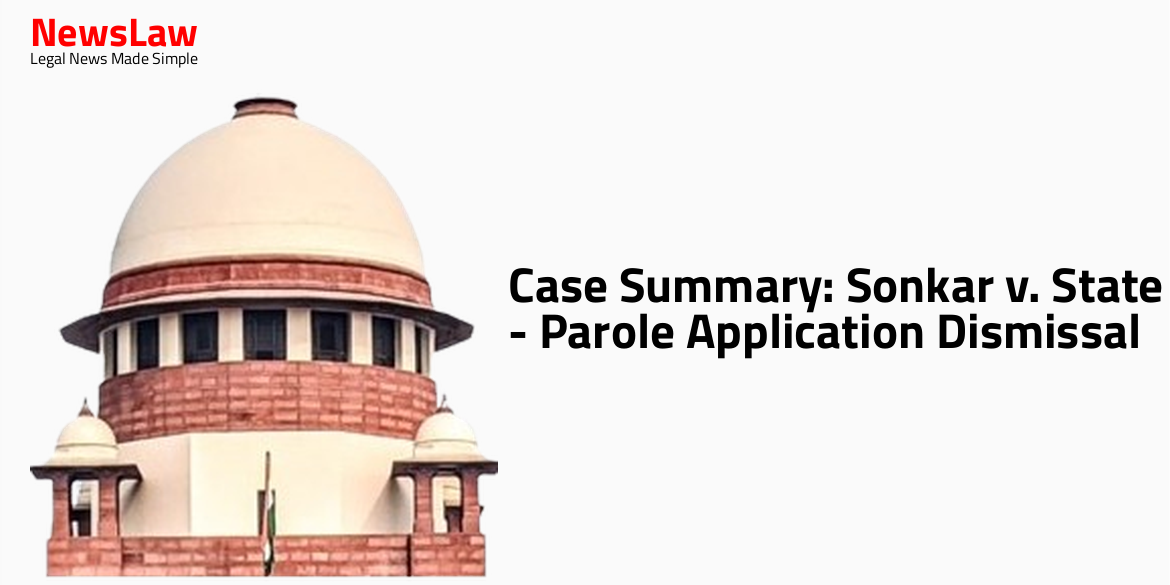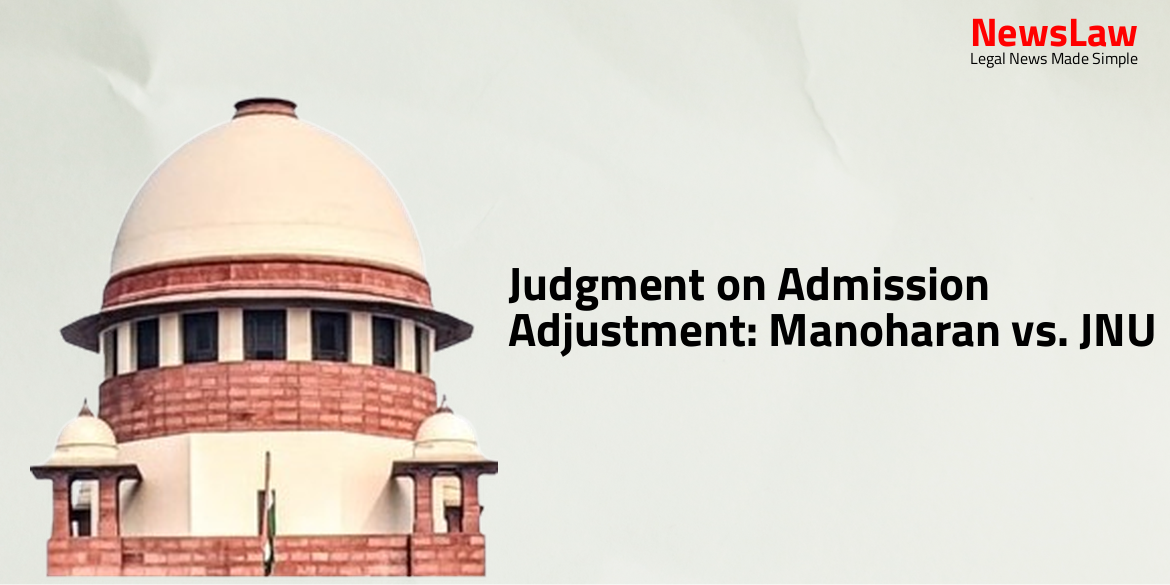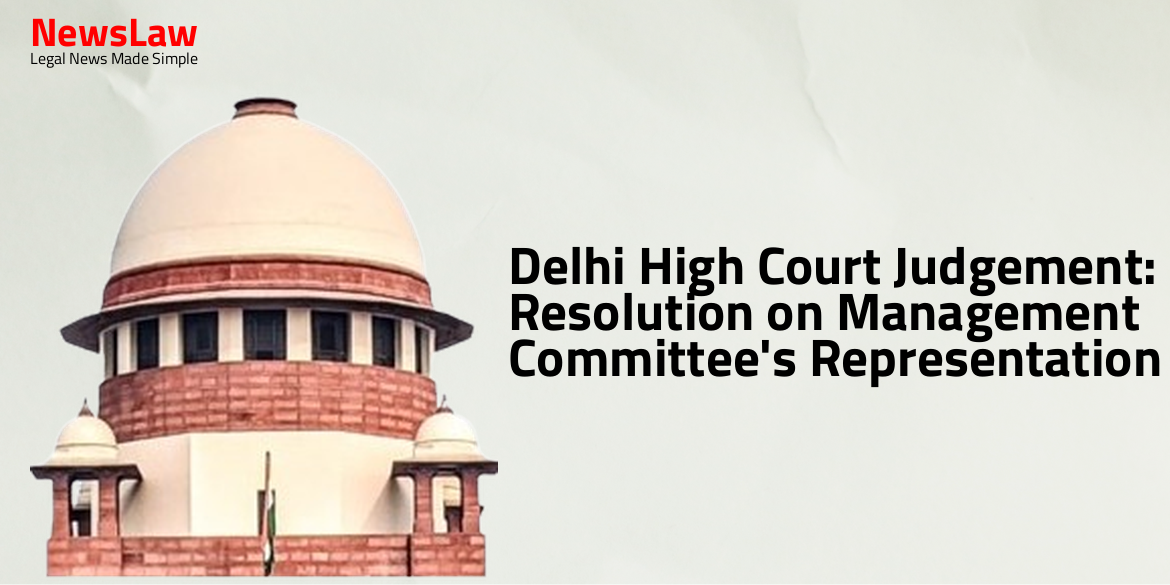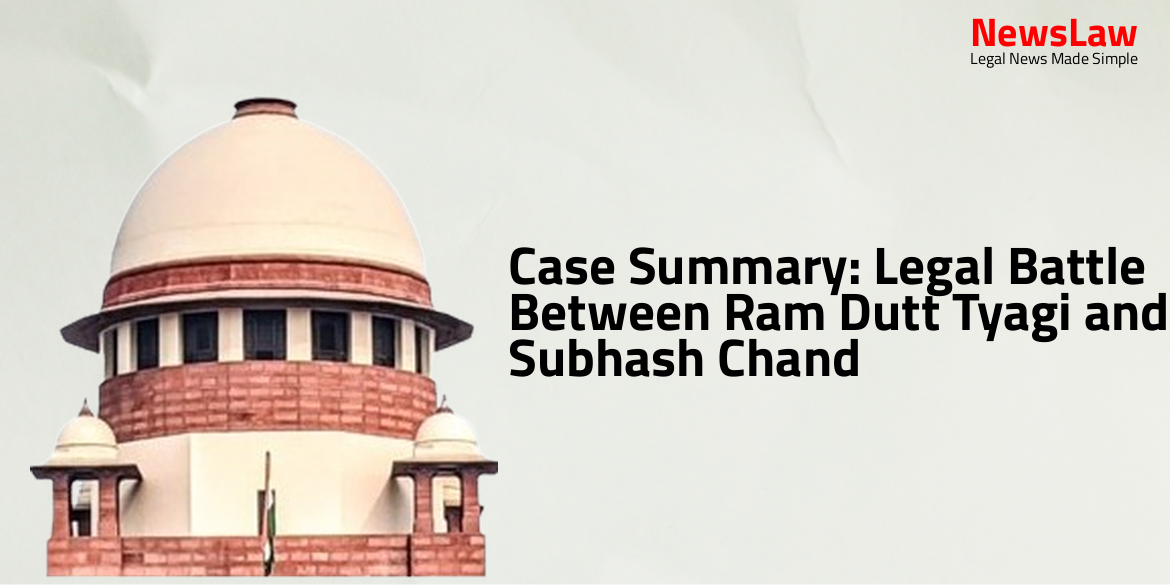The Delhi High Court recently rendered a significant judgment in the case of Sonkar v. State regarding the dismissal of a parole application. The court examined various aspects, including the petitioner’s request for parole to consummate his marriage with Ms. T and the interpretation of the Delhi Prison Rules. Dive into the details of this case to understand the nuances of the decision and its implications.
Facts
- The petitioner had applied for release on parole based on being re-arrested in a fresh case registered for offences under Sections 307/34 of IPC
- The petitioner claims to have been in judicial custody for approximately 16 years and 10 months excluding remission
- Married to Ms. T in 2021 and completed three years of marriage according to the petitioner
- Petitioner did not challenge a previous judgment of the Court in 2012 in the Apex Court
- Filed applications seeking release on parole during the pendency of the writ petition
- Previous petitions referred to his wife as Ms. A, while in the current petition she is referred to as Ms. T, whom he married on 10.01.2021
- Remittance of sentence cancelled due to re-arrest in 2023 for another offence violating terms of premature release
- Request for parole to consummate marriage with wife Ms. T and maintain social ties
- Mr. Sonkar was convicted under Sections 302/34 of the IPC and sentenced to undergo rigorous imprisonment for life and payment of fine of Rs. 5,000/- on 15.11.2011.
- The Criminal Appeal No 1590/2011 filed against the said judgment was dismissed on 23.03.2012.
- He was released on Interim Bail on 29.07.2022 but failed to surrender on time and was re-arrested on 01.03.2023.
- 1210 sub rule (V) specifies a minimum of six months to have elapsed from the date of surrender on the conclusion of the previous parole availed.
- Mr. Sonkar was released from jail on 11.09.2019 by the Hon’ble Lt. Governor, GNCTD on the recommendation of the Sentence Review Board.
- He is currently confined in Jail No. 8/9, Tihar Jail, Delhi.
Issue
- The issues for consideration in the present case are: (i) Whether the petitioner is guilty of concealment of facts and not approaching the Courts with clean hands?
- (ii) Whether a ‘live-in partner’ will be covered under the definition of ‘family’ for the purpose of grant of parole as per Rule 1201 of Delhi Prison Rules, 2018?
- (iii) Whether a convict is entitled to grant of parole for maintaining conjugal rights and procreation with his ‘live-in partner’ when he already has a legally wedded wife?
Arguments
- The petitioner’s counsel referred to the judgment in Kundan Singh v. State (NCT of Delhi) to highlight the right to procreate under Article 21 of the Indian Constitution.
- The court distinguishes the present case from Kundan Singh, emphasizing the need to evaluate each case based on its unique circumstances.
- Mr. Sonkar did not disclose that Ms. T is not the petitioner’s legally wedded wife or that she was his second wife/live-in partner.
- The petitioner has a history of being granted parole and furlough without misuse, always surrendering on time.
- The petitioner has been granted bail in the case under consideration.
- Mr. Sonkar petitioned for a four-week parole to consummate his marriage and maintain social ties.
- Petitioner requested interim parole due to wife’s medical condition and surgery on 02.05.2024.
- ASC for the State opposed the petition, claiming the petitioner is still married to Ms. A, not Ms. T.
- Court was informed that other writ petitions by the petitioner are pending.
- Plea for parole based on false grounds was argued by ASC for the State.
- Court highlighted previous parole grants for similar reasons but dismissed the petitioner’s claim due to lack of legal marriage proof.
- Interim parole request was also rejected on similar grounds.
- The State requested the dismissal of the petition and interim application.
Analysis
- Mr. Sonkar referred to Ms. T as his wife in the petition, but later mentioned her as his ‘second wife/live-in partner’, creating self-contradictory stands.
- The petitioner sought parole multiple times between 2012 to 2019 for various reasons related to his legally wedded wife, Ms. A.
- Mr. Sonkar failed to disclose his marriage to Ms. A and his three children in his recent petition seeking parole for ‘consummation of marriage’ with Ms. T.
- The Court found that granting parole based on maintaining conjugal relationships with a live-in partner, when the convict has a legal spouse and children, would set a harmful precedent.
- The Delhi Prison Rules do not permit grant of parole for maintaining ‘conjugal relationships’, even with a legally wedded wife, let alone a live-in partner.
- The Court emphasized on the distinction between ‘consummation’, ‘conjugal relationship’, and ‘procreation’, highlighting the different meanings of these terms.
- The petitioner’s conduct was scrutinized, revealing misrepresentation and failure to disclose vital information about his marital status and relationships.
- The live-in partner of the petitioner was not considered as falling within the definition of ‘family’ under the Delhi Prison Rules due to lack of legal recognition as a spouse.
- Custody Parole can be granted to a convict for a maximum of six hours in certain specified eventualities.
- The definition of ‘family’ for the purpose of parole includes grandparents, parents, siblings, spouse, children, and grandchildren.
- The grounds for which custody parole can be granted include death of a family member, marriage of a family member, serious illness in the family, and other specified circumstances.
- The petitioner is seeking parole to consummate his marriage and have conjugal relations with his wife.
- Parole can also be granted for the delivery of a child by the convict’s legally wedded wife or for serious damage to the life or property of the convict’s family.
- The right to procreate is not absolute and necessitates a contextual examination.
- Factors such as the prisoner’s parental status and age should be considered when granting parole on the ground of procreation.
- The right to procreation is inherently linked to the notion that every individual has the right to extend their lineage.
- The exercise of the right to procreate is subject to various considerations.
- In the case of Mr. Sonkar, one of the grounds for seeking parole was to carry out rituals on the death anniversary of his unborn child.
- The dynamic aspect of the right to procreate may be considered fulfilled if the inmate already has children.
- The Court considered the facts and circumstances of the case.
- After reviewing the details, the Court concluded that parole should not be granted to the petitioner.
- The Court provided reasons for denying the parole application.
Decision
- The judgment has been uploaded on the website immediately.
- The present petition and pending application have been dismissed.
Case Title: SONU SONKAR Vs. THE LT GOVERNOR, DELHI & ORS. & ORS. (2024:DHC:3763)
Case Number: W.P.(CRL)-889/2024



